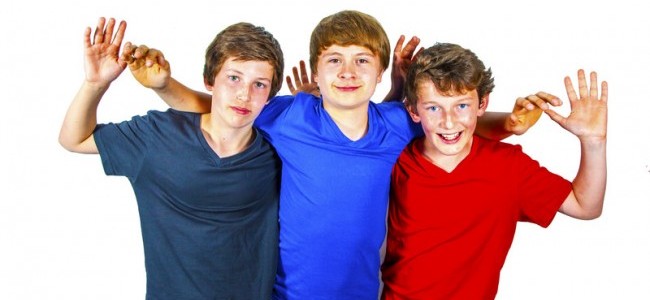Last week I discussed teaching communication skills to young men and women through school and sports as part of the eighteen year plan. This week I want to discuss having non-parents coach beyond the age of thirteen.
Why Non-Parent Coaching?
Since young men men and young women need to be able to communicate with non-parent adults beyond the age of thirteen, it follows that non-parent adults should coach teams whenever possible beyond the age of thirteen as well.
When it comes to coaches after the child reaches thirteen, it is best for parents to step aside and let a non-parent coach their son or daughter. Many parent coaches on these teams have coached the same players since they were eight or nine. And this is a real problem. I’ve seen parent coaches with teams aged sixteen still talk to their players as if they were twelve. I’ve often seen team dynamics established years ago on these teams continue to play out the same way year after year. I’ve seen “daddy- ball” in the teen years drive players away from the sport. (Read a high school coach’s thoughts about coaching his children here). Overall, it seems parent coaches have trouble changing the way they coach as the players get older and become teenagers.
Perhaps this article says it best:
When they are younger, they may enjoy having their parent as coach, but in adolescence, kids tend to want their independence from their parents, and this may not be the best or most appropriate time to coach your own child. In addition, the level of play may make a difference in your relationship with your child. The more competitive the league, the more room there is for the negative aspects to creep in.
At age thirteen, parent-coaches will need to compete with a growing list of other available options for players. Up until about that time, parent coaches pretty much have had a captive audience. But the list of other available options to teenagers grows at age thirteen. In high school, there are other clubs and other sports to compete with. Then there are girlfriends or boyfriends, jobs and cars to compete with. And the list grows longer every year. How can parent-coach can compete with this list?
This article offers some perspective with my notations in bold :
The Problem: Dropout and burnout (2, 9). There is a high dropout rate among adolescents. This may be due to lack of opportunities for athletes who get cut from their school teams or club teams, but it could also be due to burnout, or finding other things more interesting than sports, such as spending time with friends. We have already stated the health benefits possible from sport participation, so it would be advantageous from a health standpoint to see the dropout rate decline.
The Solution: Modifications to programs should be made to make them more inclusive of all who want to participate.
It is widely accepted that 70% of youths quit sports by age thirteen. (More on this in a forthcoming post). According to the American Sport Education Program, the Top 10 reasons why kids quit sports by age thirteen:
• They lost interest.
• They were not having fun.
• It required too much time.
• The coach played favorites.
• The coach was a poor teacher.
• They got tired of playing.
• There was too much emphasis on winning.
• They wanted to participate in other nonsport
activities.
• They needed more time to study.
• There was too much pressure.
Eight of the ten reasons kids quit organized sports have to do with coaching and the other two have to do with other options and demands for time.
Babe Ruth League, Inc. has attempted to address the attrition problem at age thirteen with its Prep. Program. When players turn thirteen, they have to play on a major league sized infield which can be intimidating to some. Babe Ruth realizes they lose a lot of kids at this age and has introduced this program so that thirteen year olds can experience playing on the big field together as a group.
Back to my point. As a parent, I like to think of myself as an exception to the idea that parents shouldn’t coach beyond the age of thirteen. We all do. But if children are dropping out of sports by age thirteen and if that is a concern, then we as parents have to change. Fortunately, there is a better option overall to generating youth participation in sports beyond the age of thirteen. A better option is a non-parent coach.
Qualities of Non-Parent Coaches
Non-parent coaches are more prone to be objective about play-time and are more likely to put the team first. If you pick the right one, and they have experiences in working with teenagers, they are better able to teach them the life lessons of baseball for that age group. (Here is a good story about how a non-parent coach can impact a player’s life). If players at age thirteen understand that they can be playing for well liked coaches at age thirteen and beyond, they are more likely to stay with baseball and stay out of trouble.
But I’m going to take it one step further. Not only do I recommend non-parent coaches, but I recommend coaches closer in age to the players themselves. As players get older, baseball has to compete with school, girls, jobs and cars and even video games. The list gets longer as players get older.
When I considered this list as a parent-coach in charge of our Babe Ruth baseball program, I gave up. I knew I couldn’t compete with that list. No parent could honestly compete with it in my mind. I realized that I was a parent and, classified as such, I was less “fun” than someone closer in age to the player. If I remained a parent-coach, I would become part of the problem, not part of the solution of trying to keep kids involved with sports. Recall we discussed that truism in another post and I said we would revisit it again.
Perhaps this article says it best:
Youth sports provide a wonderful way for children to have fun, develop skills and be active. Adults, especially parents, are essential for getting kids involved in sports. However, if the youth sports experience is to be the best it can be for all participants, not just the highly skilled ones, it is necessary that adults change their perspective and realign it to what the kids want.
For however long as I can remember, adult parents coached the teams at all levels in our community. Our enrollment numbers were dropping. So I chose to recruit younger coaches to handle the teams while I handled the management of them.
It worked out really well. I made it clear to the coaches, who were in their late teens and early twenties, that they made the decisions. They drafted or tried out players for teams. They did the batting order and position placement. They decided on pitching. They were the base-running coaches. When I thought I could offer some advice, I did, but they made the final decisions and I never held it against them if they decided differently.
I did some management and oversight, but as the coaches grew in competence with these skills I did less and less along these lines.
I found that the teenage players related better to coaches closer to their own age. These coaches could teach some life lessons better than I could. The team chemistry they were able to achieve was incredible. These guys could get together a team within an hour to play anywhere through social networking skills that were a marvel to watch. I learned a lot from them.
In the process, I was also helping these young men grow and develop as coaches and adults. It was a win-win for players and coaches. I like win-win solutions.
Guess what happened? Our enrollment numbers went up and after a few seasons our teams were some of the best in the area at the Senior Babe Ruth level after having floundered for fifteen years. Funny, the best two Senior Babe Ruth teams in our area over the past few years have been the teams with the youngest coaches.
I have had younger coaches for recreational teenager teams too and have had the same success all the way around. If you have a young volunteer base that could coach these teams, then this is a good idea as well.
I’m going to shout out to all the young men who have coached with me over the years. I want to thank them and apologize in advance if I have missed anyone. I want to say thank you to the following: Adam Della Salla, Alex Calhoun, Mike Duffy, Dane Flavin, Ryan Harper, Joe Harper, Tim Maurizio, Jesse McNeal, Jeremy Mehta, Collin Mehta, Brian Murray, Vinnie Nicchi, Frank Palmo and Trevor Powhida.
You guys made a difference in the lives of many young men.
It goes without saying that coaches, young and old, should be certified or trained. A non-parent coach who coaches year after year should see it as an investment to be certified from several organizations.
I should also add that I have no problem paying non-parent coaches in appropriate circumstances in community programs.
What are your thoughts about non-parent coaches?



Great article! We have based our program around the same philosophy. We have coaches that get paid to coach our teams from 13U through 18U. These coaches are interviewed and hired. We let the best qualified Dads coach from 8U to 12U. We try to find younger coaches that can relate best with the kids…. This will keep them interested and motivated.